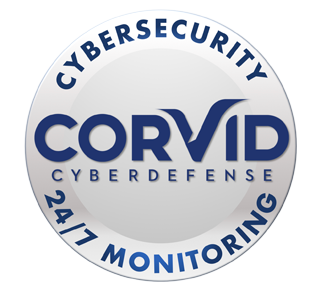 Healthcare expenses are a significant consideration for retirees, as medical costs tend to rise with age. Planning for these expenses can help you prepare for out-of-pocket costs, insurance premiums, and potential long-term care needs. Understanding Medicare, supplemental insurance, health savings accounts, and long-term care options can provide a clearer picture of what to expect and how to manage expenses.
Healthcare expenses are a significant consideration for retirees, as medical costs tend to rise with age. Planning for these expenses can help you prepare for out-of-pocket costs, insurance premiums, and potential long-term care needs. Understanding Medicare, supplemental insurance, health savings accounts, and long-term care options can provide a clearer picture of what to expect and how to manage expenses.
Estimating Healthcare Costs in Retirement
Healthcare costs in retirement vary based on factors such as age, overall health, location, and coverage choices. Some of the common expenses you may encounter include:
- Medicare premiums and out-of-pocket costs
- Prescription drug expenses
- Dental, vision, and hearing care (not covered by Original Medicare)
- Long-term care, including home health services or nursing facilities
- Medical inflation and unexpected health conditions
While some retirees may have employer-sponsored retiree health benefits, others will rely primarily on Medicare and supplemental plans. Estimating potential costs can help you budget accordingly and explore coverage options that align with your financial situation.
Understanding Medicare and Supplemental Coverage
Medicare serves as the foundation of healthcare coverage for most retirees, but it does not cover all medical expenses. Understanding its components can help you make informed choices.
Medicare Parts A, B, C, and D
- Medicare Part A (Hospital Insurance): Covers inpatient hospital stays, skilled nursing facility care, hospice care, and some home health services. Most people do not pay a premium for Part A if they or their spouse paid Medicare taxes while working.
- Medicare Part B (Medical Insurance): Covers doctor visits, outpatient care, preventive services, and some medical equipment. Part B requires a monthly premium, which is adjusted based on income.
- Medicare Part C (Medicare Advantage): Private insurance plans that bundle Parts A and B and often include prescription drug coverage (Part D), dental, vision, and hearing benefits. Costs and coverage vary by plan.
- Medicare Part D (Prescription Drug Coverage): Provides coverage for prescription medications, but costs depend on the plan and medication needs.
Medigap (Medicare Supplement Insurance)
Medigap policies are designed to help cover out-of-pocket costs such as deductibles, copayments, and coinsurance that Original Medicare does not pay. These plans are offered by private insurers and vary in coverage and cost.
Choosing between a Medigap policy and a Medicare Advantage plan depends on individual health needs, financial considerations, and provider preferences.
Retirement Healthcare Planning Tips: Long-Term Care Considerations
Long-term care expenses can be a major financial factor in retirement, as Medicare does not typically cover custodial care, such as assistance with daily activities like bathing, dressing, and eating. Options to plan for potential long-term care costs include:
- Long-term care insurance: Policies vary in coverage, and premiums may be based on age, health status, and benefits selected.
- Hybrid life insurance policies with long-term care benefits: Some life insurance plans offer riders that allow policyholders to use benefits for long-term care needs.
- Personal savings and investments: Some retirees choose to allocate funds specifically for potential long-term care expenses.
- Medicaid eligibility: Medicaid provides long-term care coverage for those who meet specific income and asset requirements. Understanding state-specific Medicaid rules can help retirees determine whether they may qualify.
Using a Health Savings Account (HSA) for Retirement Healthcare Costs
For those who have access to a Health Savings Account (HSA) before retiring, these accounts offer a tax-advantaged way to save for healthcare expenses. Contributions to an HSA are tax-deductible, grow tax-free, and can be withdrawn tax-free for qualified medical expenses.
Once you enroll in Medicare, you can no longer contribute to an HSA, but existing funds can still be used for eligible healthcare costs, including Medicare premiums (excluding Medigap), long-term care expenses, and out-of-pocket medical bills.
Managing Prescription Drug Costs
Prescription medication costs can be a significant expense in retirement. Strategies that may help manage these costs include:
- Comparing Medicare Part D plans annually to select a plan that aligns with current medication needs.
- Using generic drugs when possible, as they are often more affordable than brand-name medications.
- Exploring prescription discount programs offered by pharmacies or manufacturers.
- Checking eligibility for Medicare’s Extra Help program, which assists with prescription drug costs for those with limited income and resources.
Considering Dental, Vision, and Hearing Care
Original Medicare does not cover routine dental, vision, or hearing care, which can lead to significant out-of-pocket expenses. Instead, you may consider:
- Medicare Advantage plans that include dental, vision, and hearing benefits.
- Standalone insurance policies for specific coverage needs.
- Discount programs or community clinics that provide lower-cost services.
Budgeting for Healthcare Costs in Retirement
One of the top retirement healthcare planning tips is to create a healthcare budget to help you prepare for expected and unexpected expenses. Some steps to consider include:
- Review past healthcare expenses to estimate future costs.
- Consider premium costs for Medicare, Medigap, or Medicare Advantage plans.
- Plan for out-of-pocket expenses, such as deductibles and copayments.
- Evaluate long-term care planning options.
- Set aside savings for unexpected medical costs.
Regularly reviewing and adjusting a healthcare budget can help you adapt to changing medical needs and insurance costs over time.
Retirement Healthcare Planning Tips: Final Thoughts
Healthcare planning is an important part of retirement preparation. Understanding Medicare options, considering long-term care needs, and budgeting for medical expenses can help you make informed financial decisions. Because healthcare costs may change over time, regularly reviewing coverage choices and expenses can help you adapt your plans as needed.
Sources:
- [1] https://www.nerdwallet.com/article/insurance/medicare/medigap-what-to-know-about-medicare-supplement-insurance
- [2] https://www.aarp.org/caregiving/financial-legal/info-2021/understanding-long-term-care-insurance.html
- [3] https://www.nerdwallet.com/article/insurance/hybrid-long-term-care-insurance






















 Megan Jones joined the ILG Financial team in 2020 as marketing director. Megan and her husband live in Fredericksburg, VA with their German Short Haired Pointer, Gus. Megan is a graduate of Longwood University and holds a degree in communications. Megan is the oldest of Dave Lopez’s three children and not only enjoys working alongside her father, but also with her cousin, Chase, who joined the ILG Financial team in 2020 as an advisor. Megan is also a fully licensed Life, Health, and Annuity agent. When not at work, Megan enjoys sitting on the back porch with family and friends enjoying food and music.
Megan Jones joined the ILG Financial team in 2020 as marketing director. Megan and her husband live in Fredericksburg, VA with their German Short Haired Pointer, Gus. Megan is a graduate of Longwood University and holds a degree in communications. Megan is the oldest of Dave Lopez’s three children and not only enjoys working alongside her father, but also with her cousin, Chase, who joined the ILG Financial team in 2020 as an advisor. Megan is also a fully licensed Life, Health, and Annuity agent. When not at work, Megan enjoys sitting on the back porch with family and friends enjoying food and music. Chase Lopez joined the ILG Financial team in 2020 as an advisor. Chase is a 2016 James Madison University graduate with a degree in management. Chase has been trained under the tutelage of Dave Lopez, who is not only the founder and managing member of ILG Financial, but also is Chase’s uncle and godfather. He also enjoys working alongside his cousin, Megan, who is Dave’s daughter.
Chase Lopez joined the ILG Financial team in 2020 as an advisor. Chase is a 2016 James Madison University graduate with a degree in management. Chase has been trained under the tutelage of Dave Lopez, who is not only the founder and managing member of ILG Financial, but also is Chase’s uncle and godfather. He also enjoys working alongside his cousin, Megan, who is Dave’s daughter. Amy Anderson joined the ILG Financial team in 2023 as the client relations coordinator. Her responsibilities include scheduling of appointments, annual check-up notifications, and annuity and required minimum distribution assistance. She is a graduate of Harding University with a degree in Computer Information Systems. Amy and her husband have two children and she enjoys reading, crocheting, music and spending time with her family.
Amy Anderson joined the ILG Financial team in 2023 as the client relations coordinator. Her responsibilities include scheduling of appointments, annual check-up notifications, and annuity and required minimum distribution assistance. She is a graduate of Harding University with a degree in Computer Information Systems. Amy and her husband have two children and she enjoys reading, crocheting, music and spending time with her family. Jessica Carson joined the ILG Financial team in 2018 as an agent. Jessica and her husband have four children, two dogs, 3 barn cats, 5 chickens, and three parakeets. She indeed loves her children and pets! When not at work, Jessica enjoys playing the piano and cello as well as traveling and spending time outside with her family, hiking, fishing, and boating.
Jessica Carson joined the ILG Financial team in 2018 as an agent. Jessica and her husband have four children, two dogs, 3 barn cats, 5 chickens, and three parakeets. She indeed loves her children and pets! When not at work, Jessica enjoys playing the piano and cello as well as traveling and spending time outside with her family, hiking, fishing, and boating. Terri Center joined the ILG Financial team in 2019 as client services manager. She handles client records, application processing, and gathering information to provide a professional and friendly experience with all of our clients. Terri is a graduate of Oakland University. She is married and has two children. She enjoys hiking, family time, and puzzle challenging video games. She also likes to share her creativity in her canvas paintings and sewing projects.
Terri Center joined the ILG Financial team in 2019 as client services manager. She handles client records, application processing, and gathering information to provide a professional and friendly experience with all of our clients. Terri is a graduate of Oakland University. She is married and has two children. She enjoys hiking, family time, and puzzle challenging video games. She also likes to share her creativity in her canvas paintings and sewing projects.